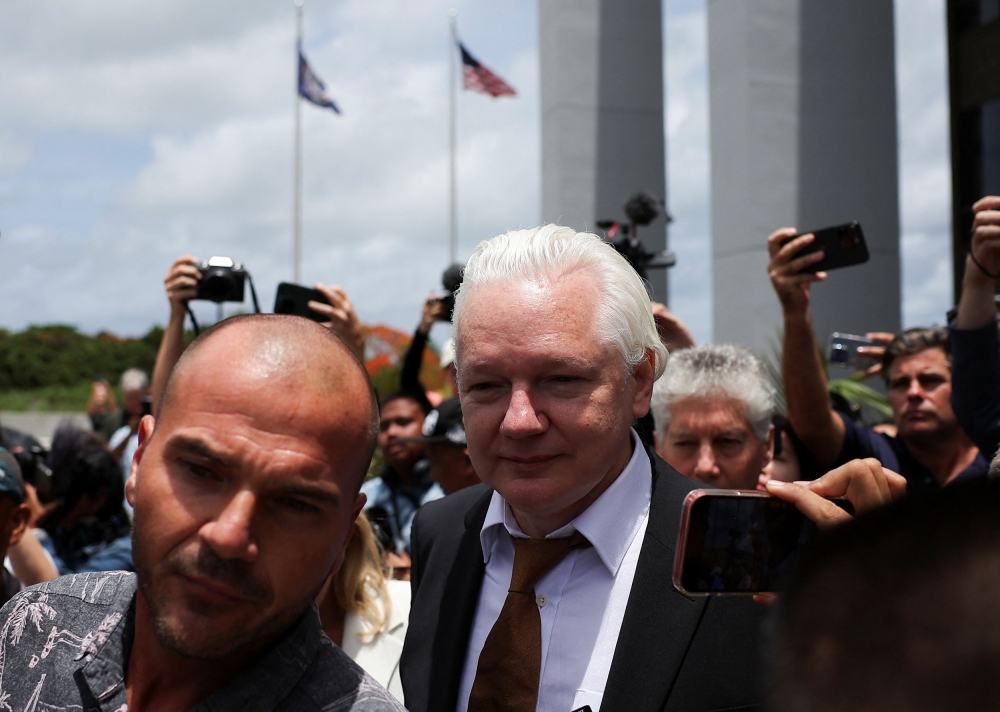JULY 10 — The timing could not have been better.
On June 24, I was speaking to my class about Julian Assange and the phenomenon of whistle-blowing.
I showed my class the video, submitted to Wikileaks by Chelsea Manning, of a US Apache helicopter shooting civilians in Baghdad in 2007.
We then discussed the role, value and (of course) dangers of whistle-blowing and how our digitalised era has made it easier to expose both good and bad secrets, Assange’s arrest, asylum-seeking and the subsequent struggle to avoid extradition to the US.
Then 24 hours later the news broke that Assange was a free man after making a plea deal with the US — I mean, what are the odds?
Whether Assange is a criminal slash traitor or a paragon for free speech will, of course, be an on-going debate. Is Assange guilty of breaching sensitive army/government information or should he be valorised for boldly exposing shameful government secrets? Should he be punished for damaging security and endangering lives, or should he be cheered for showing the powers that be that they can’t hide their misdeeds?
In my class, we discussed the issue by switching domains from the US military to corporate life. The question was, assume the top management of a company did something very bad.
Would such offenses justify whistle-blowing which could itself lead to bad consequences? If whistle-blowing was problem-free then it’s a no-brainer. But what if the exposé, say, caused some workers to lose their jobs? What if it resulted in lawsuits which ruins the company?
Whistle-blowing may involve ethical issues, not simply moral (usually what those overwhelmingly in favour of the practise focus on) and legal ones (cue Assange’s problems with US courts).

It can be extremely easy for the average person sitting in front of a laptop to declare, oh, let’s reveal and expose every wrong-doing by every important organisation (!), but when skin is in the game, the decision won’t be easy anymore.
Job loss, legal persecution and even physical safety may be at stake.
Yes, thankfully Malaysia has the Whistleblowers Protection Act of 2010 which provides some protection. Even then, the limited disclosure channels and the possibility that an act of disclosure of information could be an offence under another legislation (as all as other factors) weakens the Act somehow (Bakar and Mangsor, 2022, see Note 1 for the reference).
In Assange’s case, things were doubly complicated as the charges against him involved hacking into and publishing government databases i.e. doing illegal stuff.
So is whistle-blowing okay if it involves breaking the law? What if it involves hurting someone either in the act of disclosure or in the future, as in Assange’s case where he was accused of endangering the lives of confidential government sources (some of whom “disappeared” after the leak)?
Many would say that, in Assange’s case at least, the enormity of the US government’s crimes justified the leak. Innocent people were killed in what looks like a cruel Friday night “gaming” session by American soldiers in a helicopter. How should such a tragedy not be exposed, whatever the costs?
The above forms the essence of ethics i.e. they demand a re-examination of what values matter to us the most, what we will accept as trade-offs and/or what must be done regardless.
Such demands may become more urgent in a future where whistle-blowing may be more prevalent and thus where uncertainty and fear may reign, linger or, at the very least, leak out.
Note 1: Bakar, M. A. O. C. A., & Mangsor, M. M. (2022). It’s Not Enough to Speak, But to Speak True: Revisiting the Whistleblower Protection Law in Malaysia. — Malaysian Journal of Social Sciences and Humanities






















